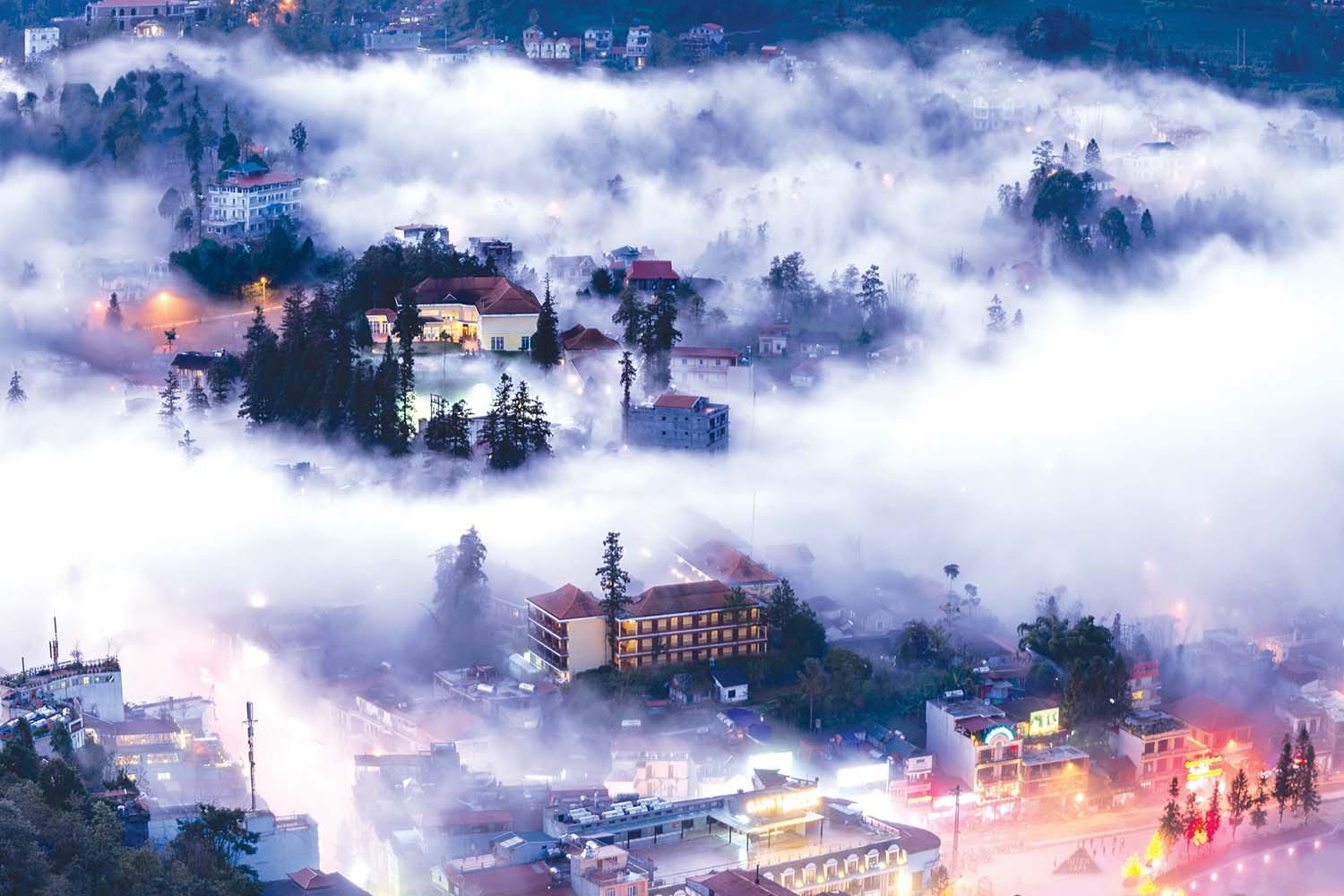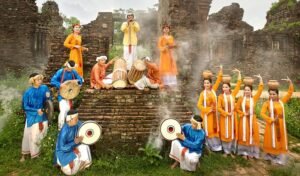A Harmonious Blend: Exploring Vietnamese Traditional Music
Vietnamese traditional music holds a special place in the heart of the nation’s culture, encapsulating its history, values, and deep connection to nature and spirituality. Spanning centuries, this musical tradition reflects Vietnam’s diversity and resilience, bridging generations through its melodies and instruments. Let’s delve into the rich tapestry of Vietnamese traditional music, from its roots in Vietnamese folk music to the enchanting variety of Vietnamese musical instruments.
The Essence of Vietnamese Traditional Music
Vietnamese traditional music is more than entertainment—it’s a vessel of storytelling, ritual, and cultural identity. Its rhythms and melodies embody the soul of Vietnam, passed down through oral tradition.
1. The Cultural Significance
Traditional music serves as a mirror of Vietnamese life, reflecting its agricultural roots, festivals, and spiritual practices. It’s a medium to honor ancestors, celebrate community, and convey moral teachings.
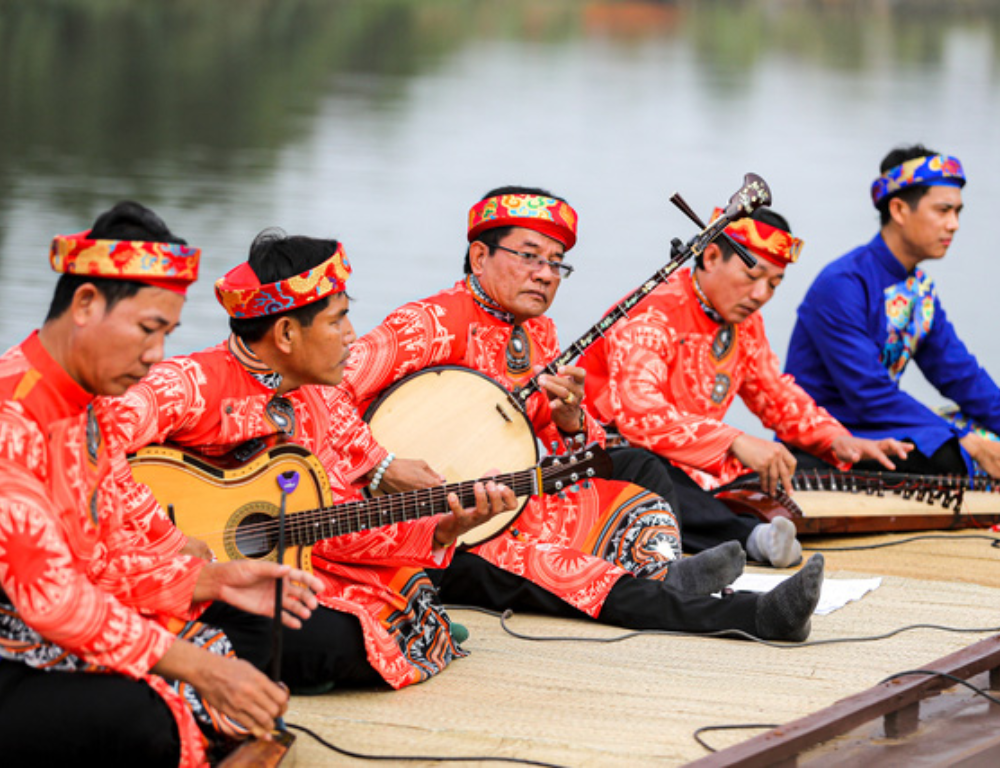

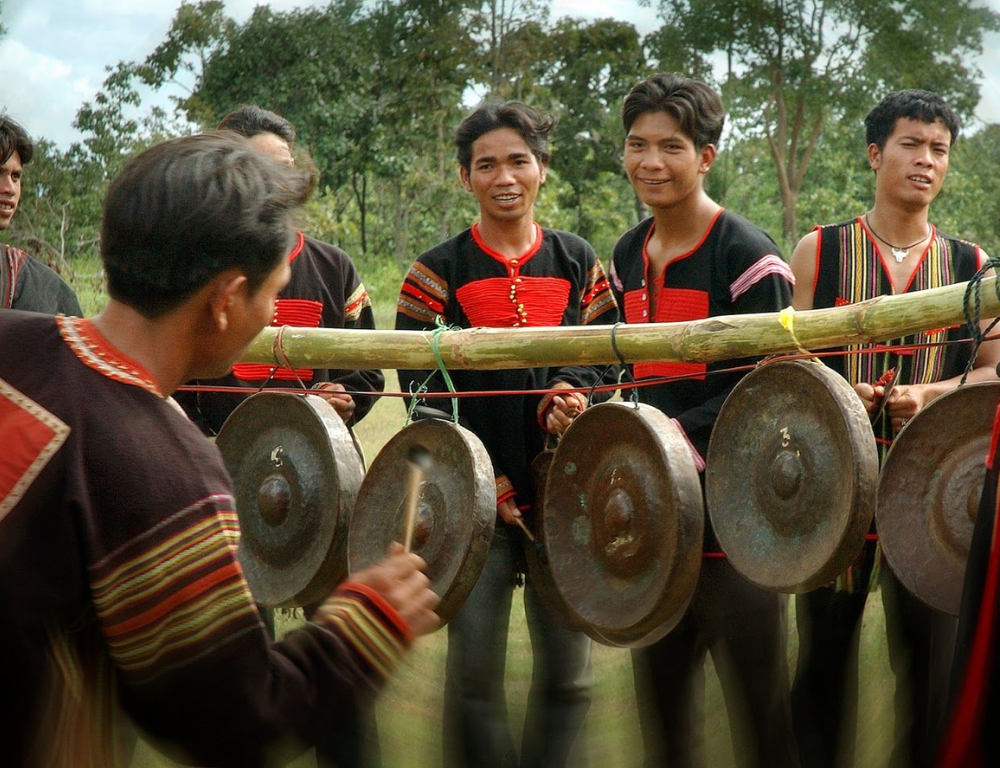

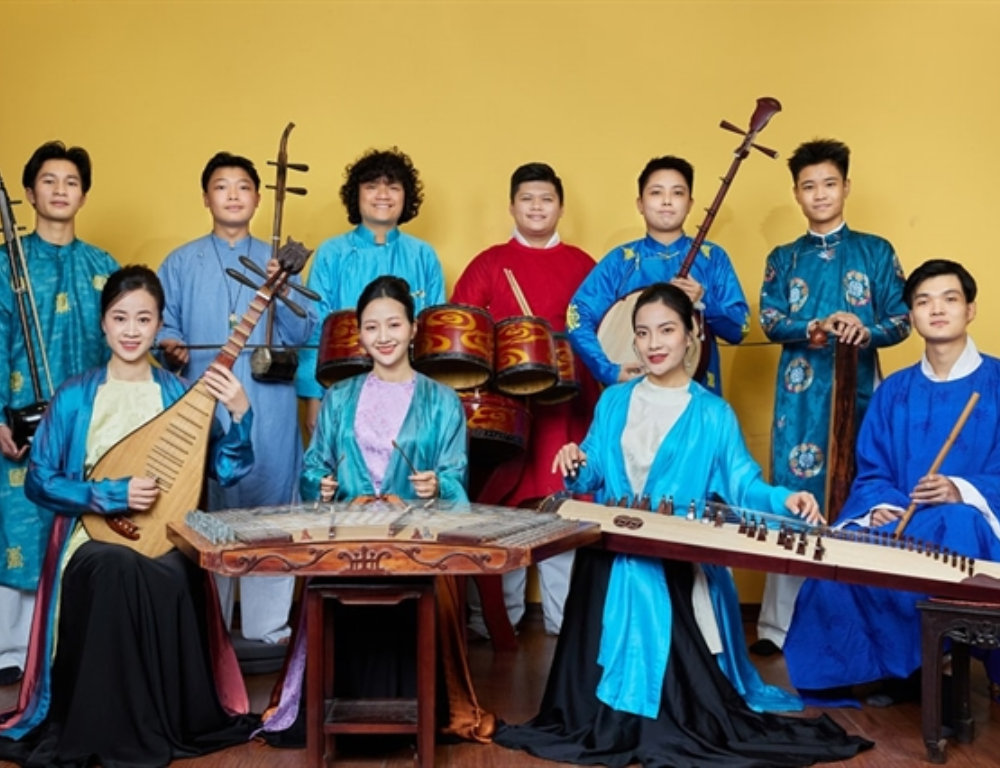

2. Regional Diversity
Vietnam’s geography has significantly influenced its musical styles. The northern regions emphasize formality and precision, while the southern regions lean toward improvisation and emotional expression. Central Vietnam is known for its melancholic yet poetic melodies.
🔥 Curious to know how the Hanoi Opera House is wonderful? Find out more in this article.
Roots in Vietnamese Folk Music
Vietnamese folk music lies at the core of the nation’s musical heritage. Each song tells a story of daily life, love, labor, or spirituality.
3. Dong Ca: The Songs of Laborers
Dong Ca refers to work songs sung by farmers, fishermen, and laborers to synchronize their movements or lighten their workload. These tunes often feature call-and-response patterns, fostering a sense of community.
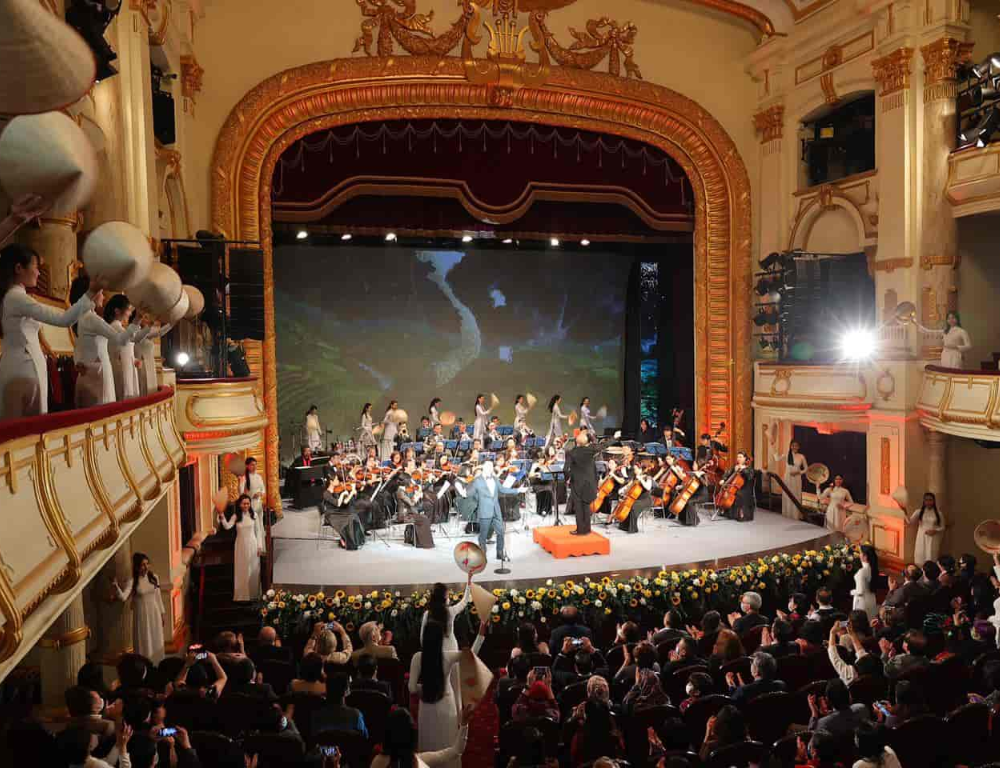

4. Ca Tru: The Scholars’ Music
Ca Tru, a traditional chamber music style, originated in northern Vietnam. It combines poetry with music and is performed by a trio of musicians using the dan day (a three-stringed lute), phach (wooden percussion), and a singer.
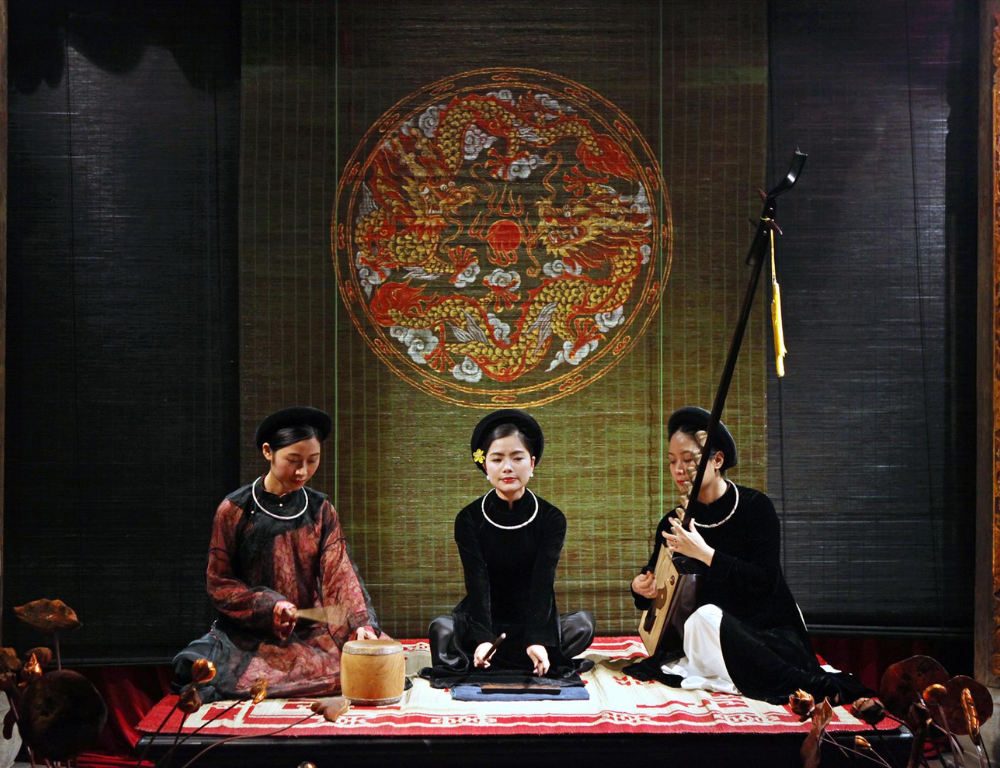
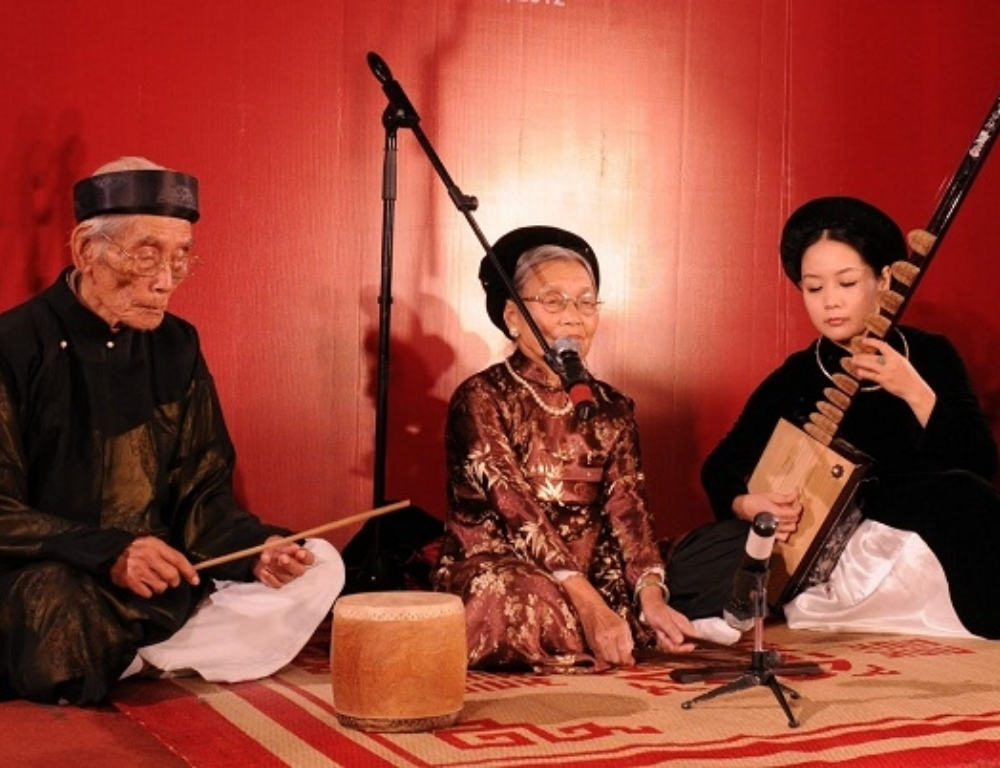

5. Quan Ho: Courtship Melodies
Quan Ho is a unique form of folk music popular in northern provinces like Bac Ninh. It features antiphonal singing between male and female groups, often performed during spring festivals to celebrate love and friendship.
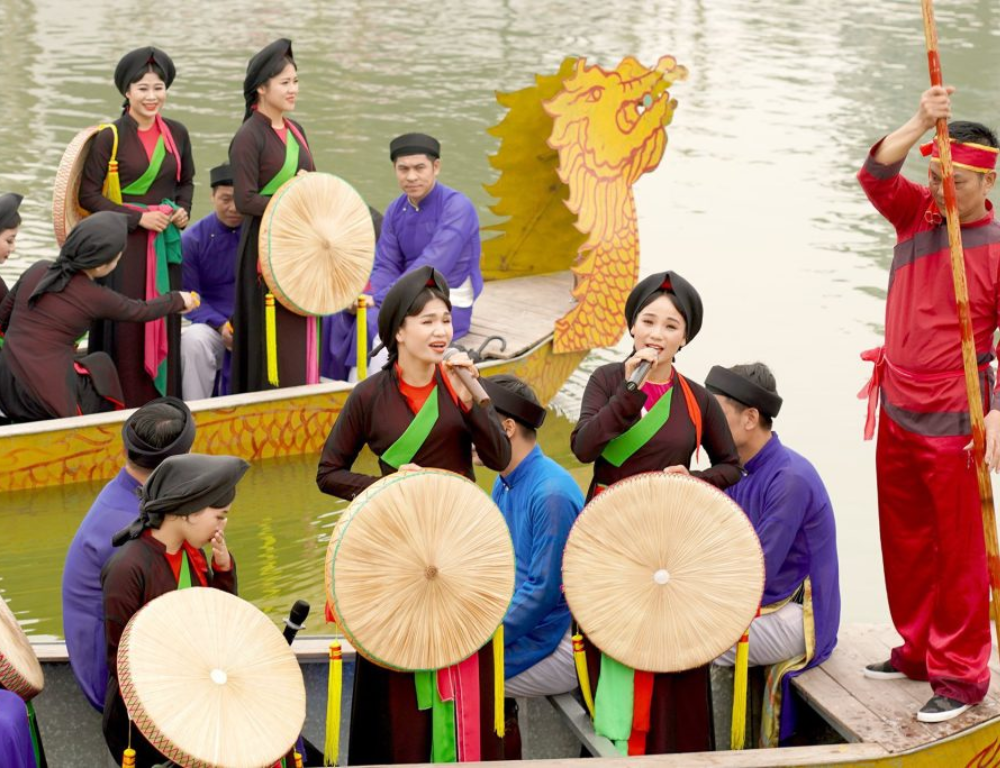

🔥 Ready to plan your ultimate Hanoi itinerary? Start here: The Ultimate Vietnam Packing List: Essentials for Your Southeast Asia Trip
Vietnamese Musical Instruments: A Symphony of Innovation
The beauty of traditional Vietnamese Music is amplified by the array of unique instruments that create its distinctive sounds.
6. Dan Bau: The Monochord
The dan bau is one of the most iconic Vietnamese musical instruments. This single-stringed zither produces hauntingly beautiful sounds and is often associated with the ethereal quality of Vietnamese music. The player uses a bamboo stick to create pitch variations, mimicking the human voice.
7. Dan Tranh: The Zither
The dan tranh, or 16-string zither, is a versatile instrument that captures the delicate nuances of Vietnamese music. Played with picks attached to the fingers, it often accompanies folk songs and poetic recitals.
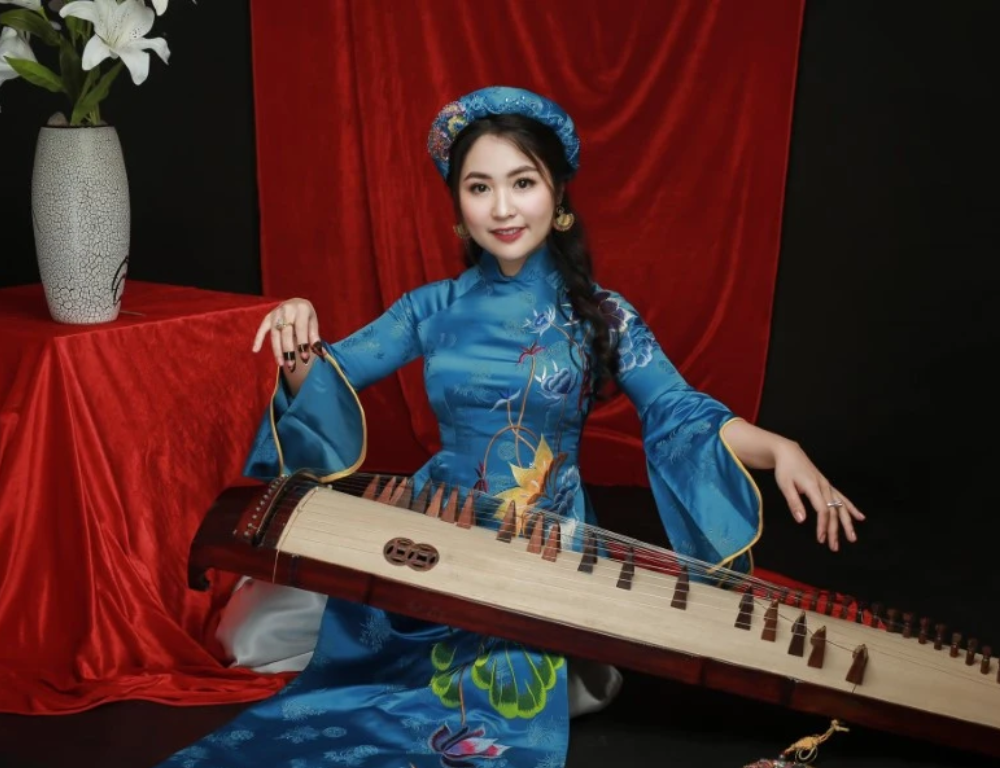

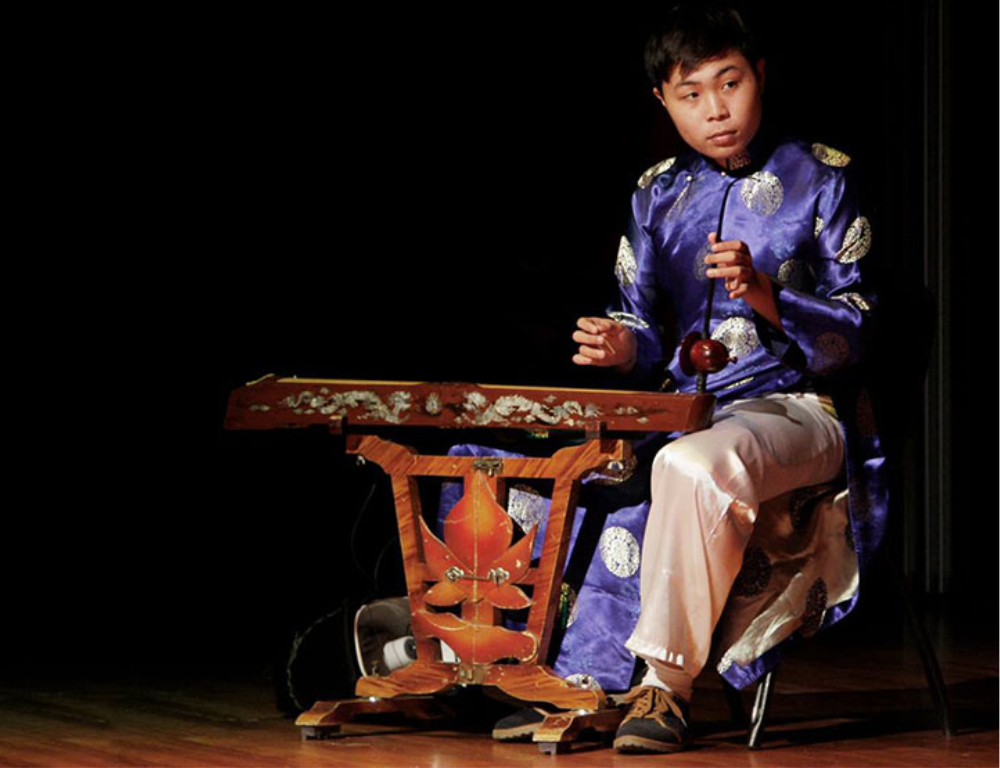

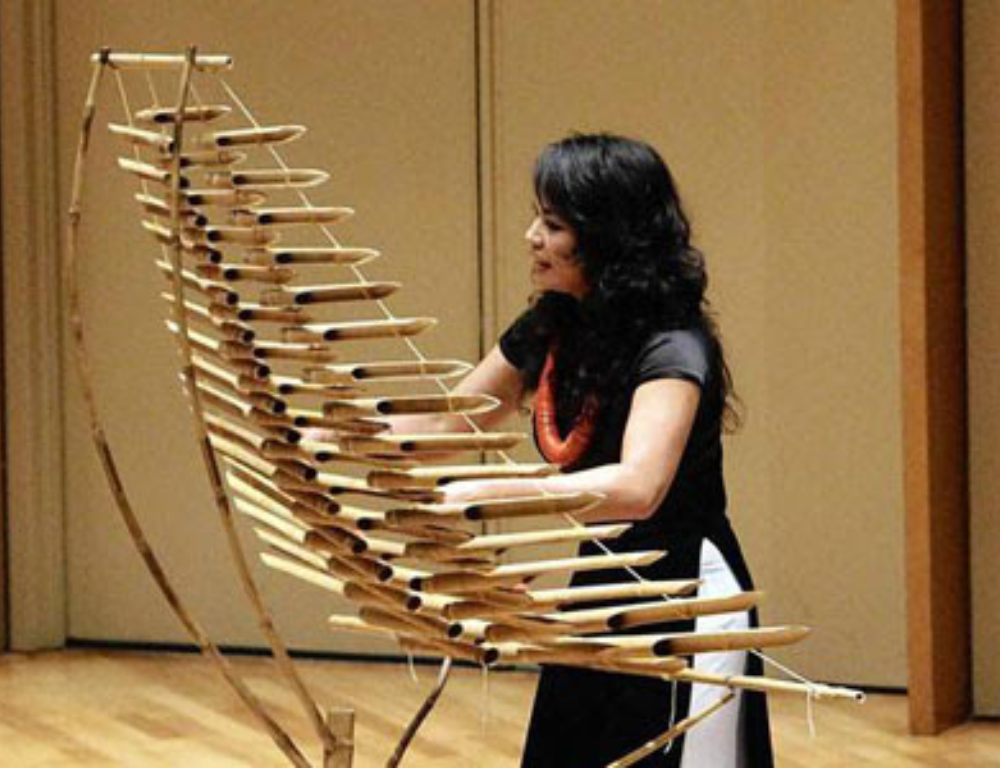

8. Dan Nhi: The Two-String Fiddle
Similar to the Chinese erhu, the dan nhi produces a rich, resonant tone. Its expressive capabilities make it a favorite for solo performances as well as in orchestras.
9. Bamboo Flutes and Percussion
Bamboo flutes, known as sao truc, are widely used in Vietnamese folk music. Their melodic tones evoke images of rural landscapes and pastoral life. Percussion instruments, such as the trong (drums) and mo (wooden clappers), provide rhythmic foundations in festive and ritualistic settings.
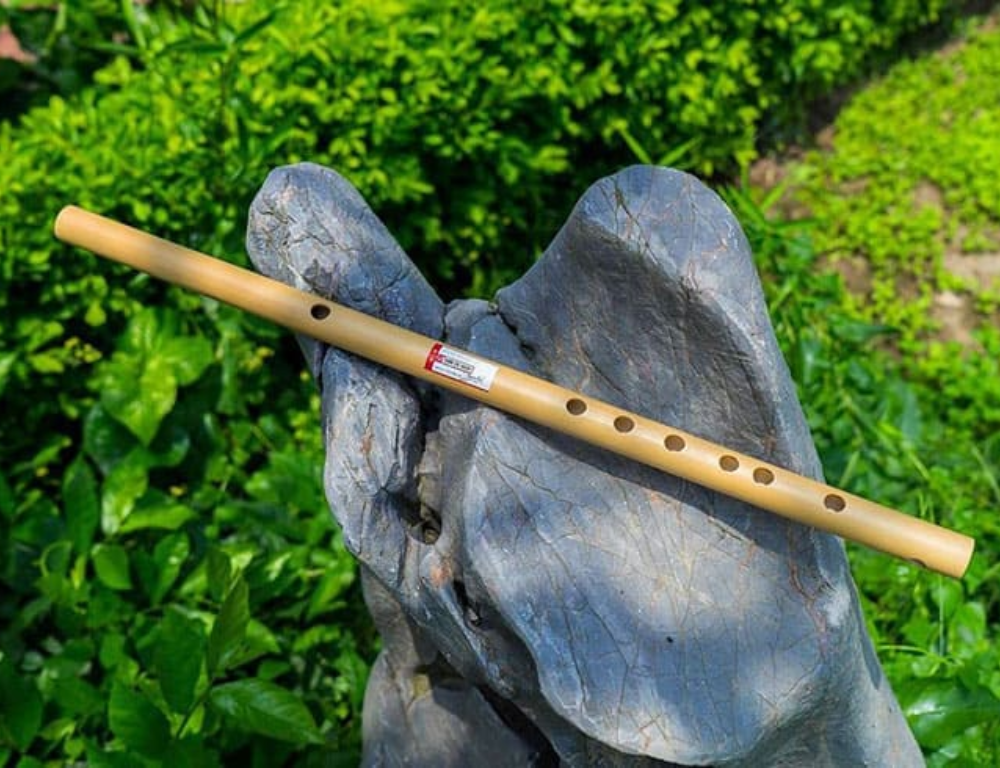

🇻🇳 Experience the vibrant atmosphere of Vietnamese festivals!
Spirituality and Vietnamese Traditional Music
Music is deeply intertwined with spirituality in Vietnam, playing an integral role in rituals, festivals, and religious practices.
10. Hat Chau Van: Spirit Worship Music
Hat Chau Van is a genre of music used in Len Dong, a spiritual ritual where mediums communicate with spirits. This style blends singing with rhythmic percussion to create a trance-like atmosphere.
11. Buddhist Chanting
Buddhist ceremonies often include meditative chanting accompanied by the striking of bells and gongs. The serene melodies are believed to connect practitioners with spiritual realms.
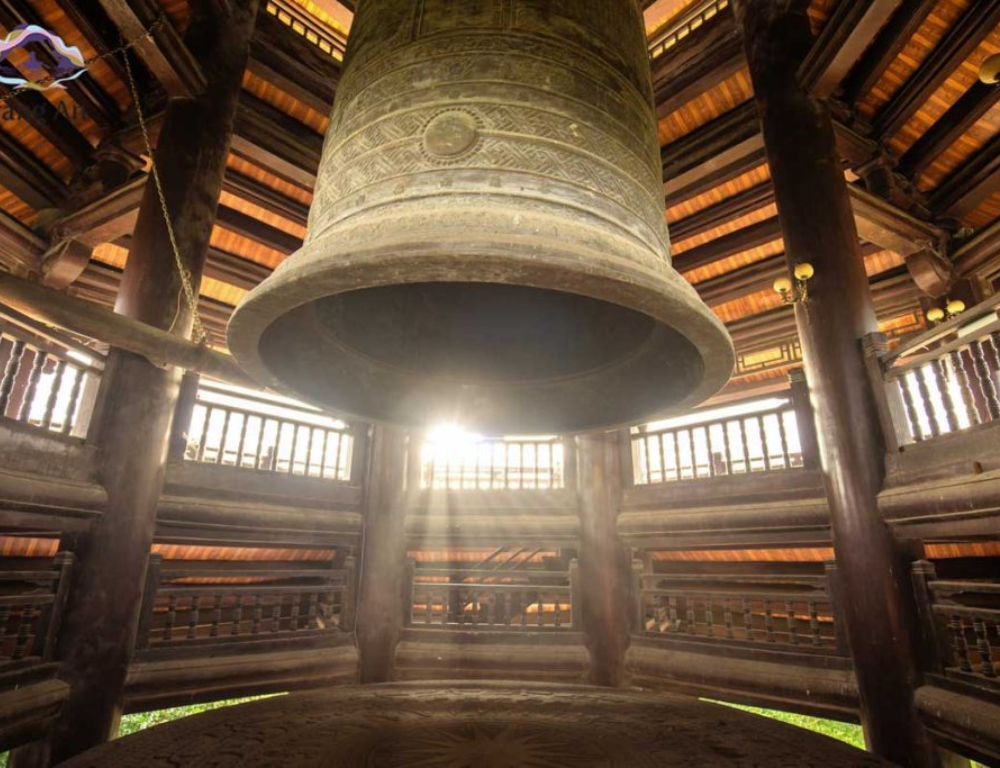

12. Music in Ancestral Worship
Traditional music often features in rituals honoring ancestors, reflecting the deep respect Vietnamese people hold for their heritage. Instruments like the dan bau and dan tranh are commonly played during these ceremonies.
📸 Immerse yourself in Vietnam’s captivating culture. From ancient temples to vibrant festivals, there’s something for everyone. | Contact us via WhatsApp or follow Sun Getaways Travel Fanpage for personalized trip planning. Or follow these posts to explore the cultural wonders of Vietnam:
Court Music: The Legacy of the Royal Courts
During Vietnam’s feudal era, court music played a central role in the royal courts.
13. Nha Nhac: Court Music of Hue
Recognized by UNESCO as an Intangible Cultural Heritage, Nha Nhac represents the pinnacle of Vietnamese court music. Originating during the Nguyen Dynasty, it was performed during royal ceremonies, coronations, and festivals. This genre emphasizes formality, precision, and a blend of Chinese and Vietnamese musical elements.
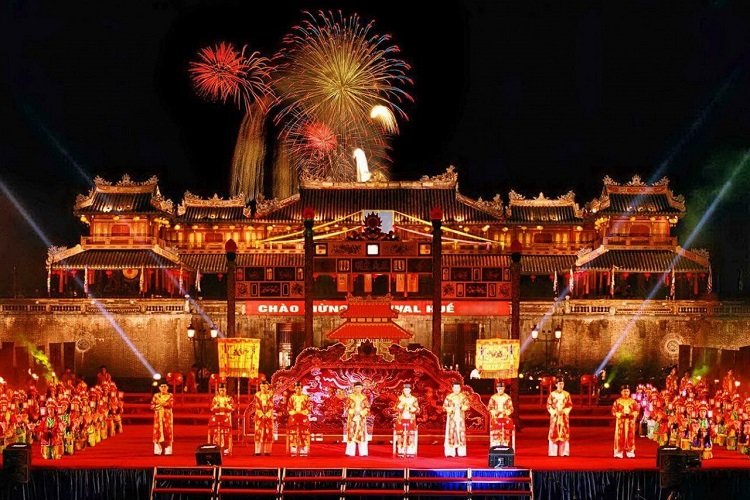

14. Instruments of the Royal Court
Court music ensembles featured a range of instruments, including the “dan nguyet” (moon lute), “dan ty ba” (pear-shaped lute), and various percussion instruments, creating an intricate and harmonious soundscape.
Vietnamese Traditional Music in Daily Life
Despite modernization, Vietnamese traditional music continues to play a role in everyday life, from weddings to festivals. During Tet Holiday (Vietnamese Lunar New Year), traditional music fills the air as families celebrate together. Folk songs and instruments accompany lion dances and festive rituals.
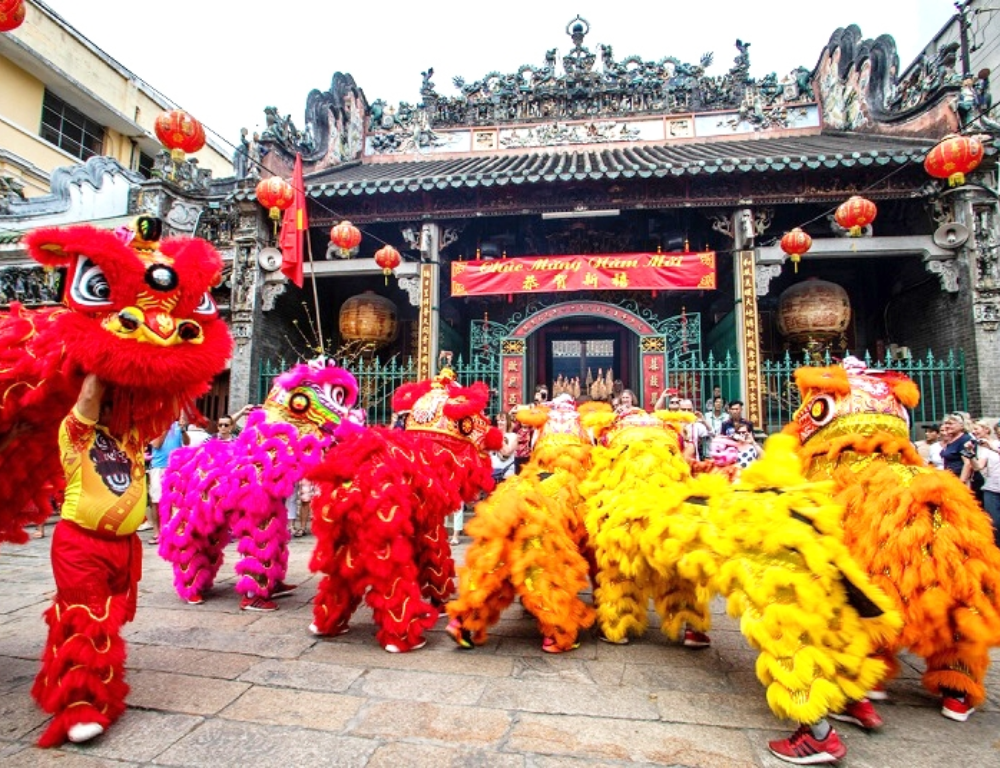



Traditional tunes are performed during weddings and community gatherings, symbolizing joy and unity. Musicians often play the dan tranh or bamboo flutes to create an atmosphere of harmony and celebration.
🇻🇳 Learn about proper Vietnamese etiquette and customs.
Global Recognition of Vietnamese Traditional Music
Vietnamese traditional music has gained international acclaim for its uniqueness and beauty.
UNESCO Acknowledgment: Genres like Nha Nhac and Quan Ho have been recognized as Intangible Cultural Heritage by UNESCO, underscoring their global cultural significance.
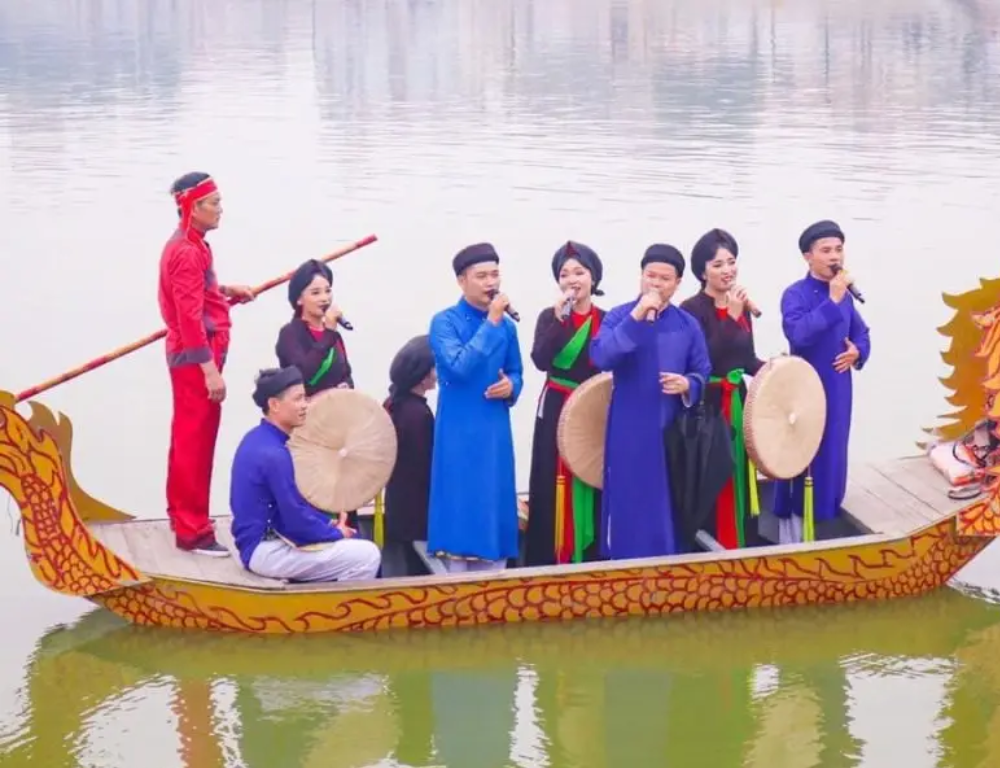

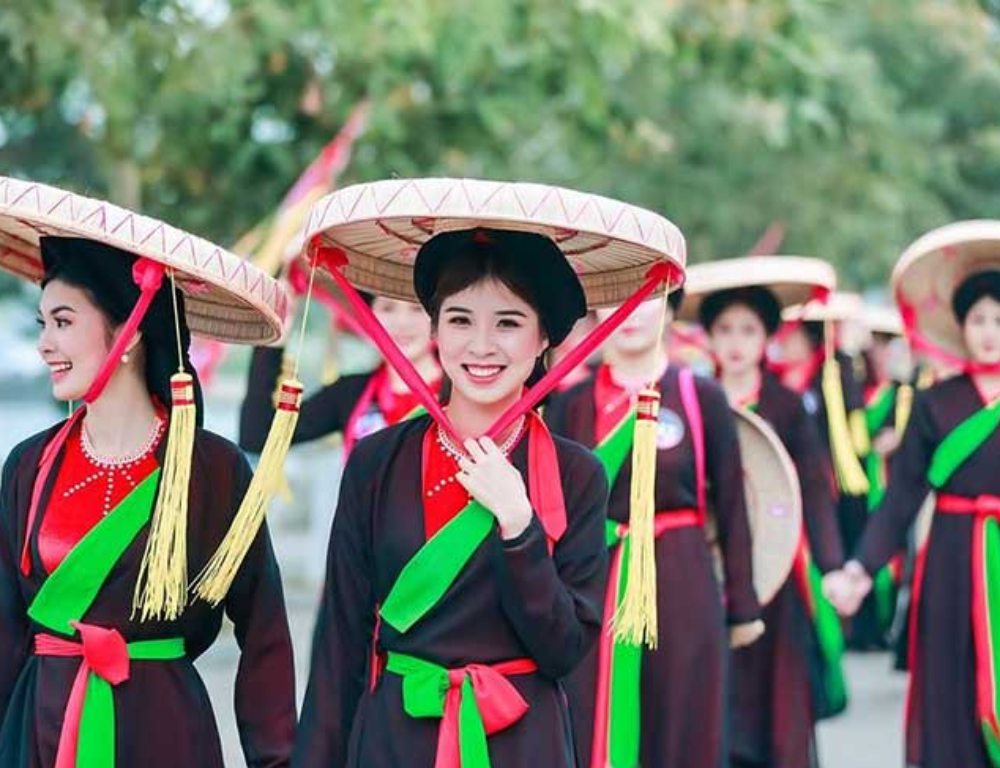

International Performances: Vietnamese musicians regularly perform traditional music on global stages, showcasing the country’s rich heritage and fostering cultural exchange.
🇻🇳 Discover the unique cultural significance of the Lim Festival!
FAQs
1. What is Vietnamese traditional music?
Vietnamese traditional music encompasses various styles and genres that reflect the country’s history, culture, and values. It includes folk songs, court music, and spiritual melodies.
2. What are the main types of Vietnamese folk music?
Key types of Vietnamese folk music include Dong Ca (work songs), Ca Tru (chamber music), and Quan Ho (courtship songs).
3. What instruments are used in Vietnamese traditional music?
Vietnamese traditional music features instruments like the dan bau (monochord), dan tranh (zither), dan nhi (two-string fiddle), and bamboo flutes.
4. How is Vietnamese traditional music preserved today?
Efforts include cultural festivals, government initiatives, educational programs, and blending traditional elements with modern music styles.
5. Why is Vietnamese traditional music significant?
It reflects Vietnam’s cultural identity, spirituality, and history, serving as a bridge between generations and fostering national pride.
────୨ৎ────
Conclusion
Vietnamese traditional music is a profound expression of the nation’s soul, connecting its past, present, and future. From the vibrant rhythms of Vietnamese folk music to the delicate harmonies of Vietnamese musical instruments, it weaves together stories of resilience, spirituality, and unity. As efforts to preserve and modernize this art form continue, Vietnamese traditional music remains a testament to the enduring beauty of the country’s cultural heritage.
Experience Vietnam like never before with Sun Getaways Travel. Our all-inclusive trips cover every detail, from accommodations and transportation to unforgettable experiences, depending on your interests (Our Customized Private Tour for each customer to Vietnam 🇻🇳). Ready to embark on your next adventure?
Ask a question
Leave a Comment (0)
No questions yet. Be the first to ask a question!





